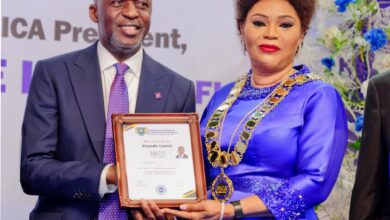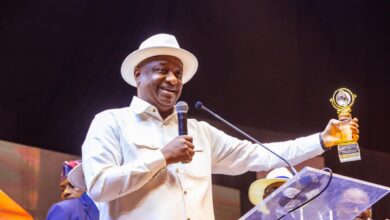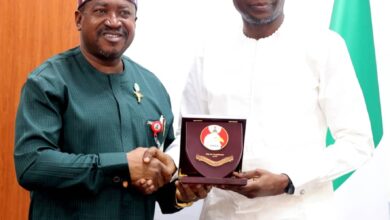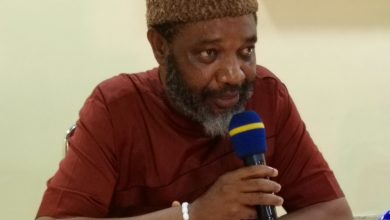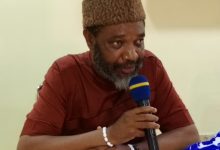Stakeholders Demand Equitable, Inclusive Climate Change Agenda for Impacted Frontline Communities
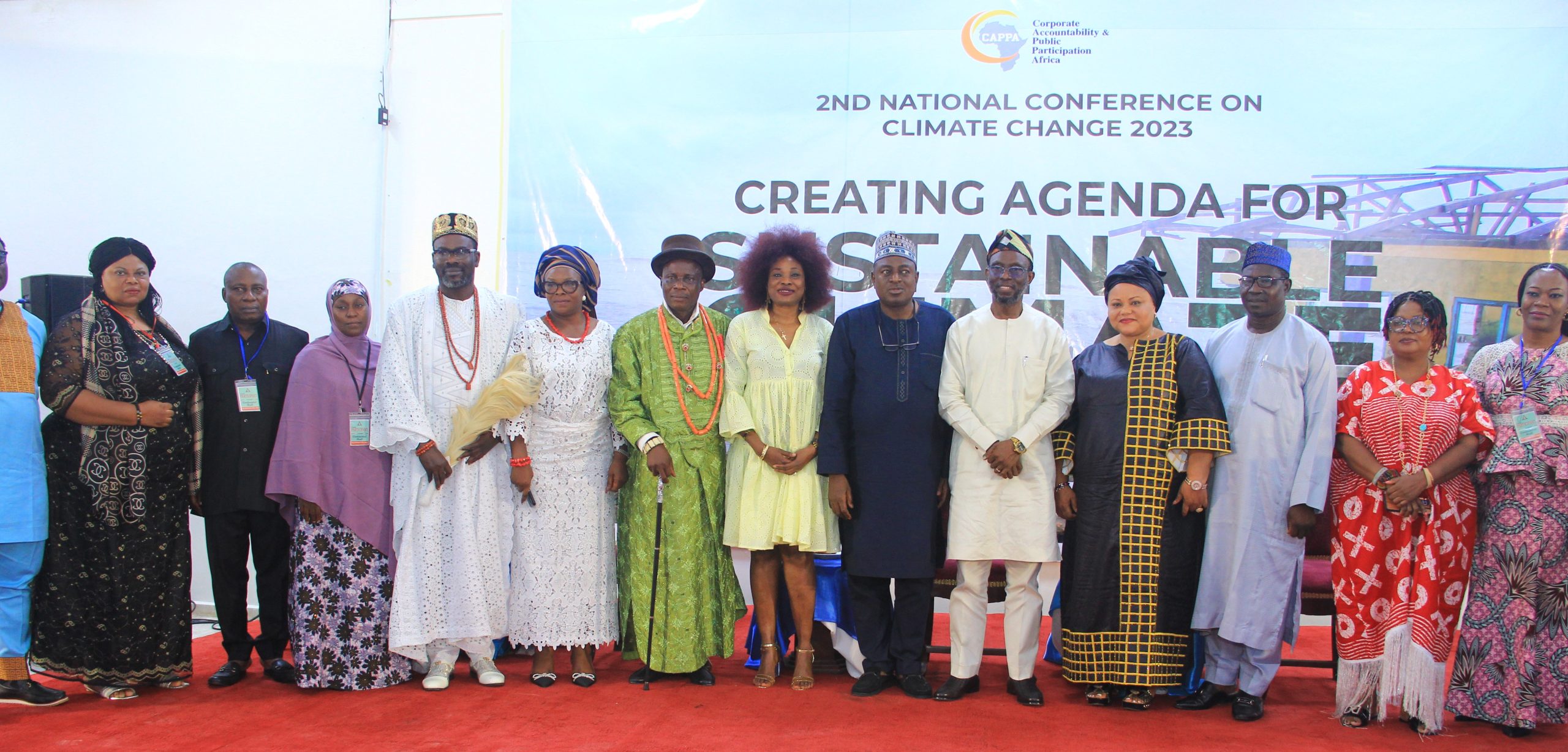
A cross section of participants at the second edition of Climate Change Conference held in Abuja
By Edu Abade
Ahead of this year’s Committee of the Parties (COP28) slated for Dubai in November, stakeholders including environmental activists, community representatives, civil society, scholars, development experts and officials of the Federal Ministry of Environment have canvassed the adoption of a just, equitable and inclusive climate change agenda that will accommodate and convey the interests of all, especially the highly impacted frontline communities.
They said Nigeria must lead the way among African nations in advancing the call for historical liability, while culpable national entities should be made to pay, contribute to loss and damage funds, commit strongly to cutting emissions and make reparations for the consequences of their actions.
In a communiqué issued at the end of a National Conference on Climate Change 2023 held in Abuja on October 23, they maintained that African governments must show accountability and transparency in managing climate funds directed to vulnerable communities.
The conference with the theme: Creating a sustainable Climate Finance for Nigeria was the second annual National Conference on Climate Change, organised by the Corporate Accountability and Public Participation Africa (CAPPA).
It featured engaging panel sessions and insightful discussions that interrogated the Nigerian Agenda for Cop28, the hidden truth about carbon offsets, the plight of the sinking city of Ayetoro in Ondo State, the unending pollution siege on the Niger Delta, the disappearing Lake Chad, the African Climate Summit pact and other global climate conversations of national interest.
In his opening remarks, Minister of State for the Environment, Dr. Iziaq Salako, who was represented by Mr. Jonah Barde, underscored the importance of seeing climate change as not just an environmental concern, but also a socio-economic and moral imperative that demands coordinated and collective action.
In his keynote address titled: Loss and Damage Fund and the Quest for Sustainable Climate Finance Mechanism, delivered by Prof. Lanre Fagbohun, a former Vice Chancellor, Lagos State University (LASU) stressed the urgent need for a sustainable climate finance mechanism for Nigeria and extension, Africa.
He also highlighted the necessity of acknowledging that climate-induced loss and damage disproportionately affect the most vulnerable and insisted that the international community must respond with swift, fair, and substantial financial support to address the crisis.
On his part, the Ogeloyinbo of Ayetoro HRH Oba Ojagbohunmi Oluwambe (JP), who dwelled on the dire situation of Ayetoro City in Ondo State, lamented that the once beautiful and serene coastal community is now being severely ravaged by climate change-induced ocean surges and destructive floods.
He said: “The plight of Ayetoro is further exacerbated by the incessant fossil fuel exploration around its resource-rich area that has caused a degradation of its lands, waters and relief profile. The resulting damage has forced the indigenous population into makeshift homes, while government interventions have consistently fallen short, leaving the town and its vulnerable populations in ruins.”
Furthermore, Executive Director, Health of Mother Earth Foundation (HOMEF), Dr. Nnimmo Bassey, interrogated the Nairobi Declaration at the Africa Climate Summit, highlighting the failure of African leaders at the meeting to reach a definite pro-people strategy for tackling the profound repercussions of climate change and reckless extractivism across the African continent.
He emphasized that Africa must adopt the social energy manifesto outlined by frontline communities and vulnerable populations in the Global South. The manifesto underscores the critical need for a just transition that halts the cannibalistic and colonialist exploitation of Africa’s invaluable mineral resources, as a matter of paramount importance for the continent’s sustainable future.
“African countries must play an active role in reaching international agreements on the warehousing and disbursements of loss and damage funds. The continent must also ensure transparency, efficiency, and equitable distribution of funds.
“Nigeria and other African nations in extension, must collectively reject ill-conceived proposals such as the warehousing of the loss and damage fund at the World Bank. Options for warehousing the fund can include situating the fund within existing mechanisms of the UNFCCC and further strengthening such mechanisms to be fit for purpose. The Fund can also be situated in relevant regional institutions of vulnerable states to ensure easier access for frontline communities.
“Global climate governance cannot continue to be used to promote the interests and businesses of the Global North and its corporations, while funds mobilised from the private sector to address climate challenges must not create additional debt burdens for country or individual recipients in Africa
“The Transitional Committee established to operationalise the funding arrangements for the Loss and Damage Fund must develop clear evaluation and monitoring parameters for identifying relevant losses and ensuring that resources get directly to affected communities. This is to prevent the misuse of such funds by corrupt officials,” the communiqué stated.
Other recommendations include that African peoples and leaders must stand against the commodification of their forests and bio-resources through carbon markets. African governments must promote policies that reject the notion that Africa could become a storehouse for global emissions, prioritize the well-being of local communities, and protect their culture and ancestral lands.
Among other recommendations, the communiqué stated that stakeholders should launch a national day for climate action and that Nigeria’s climate governance must consistently engage vulnerable frontline communities in climate discussions and ensure that their voices are captured in climate policy formulation and implementation.






